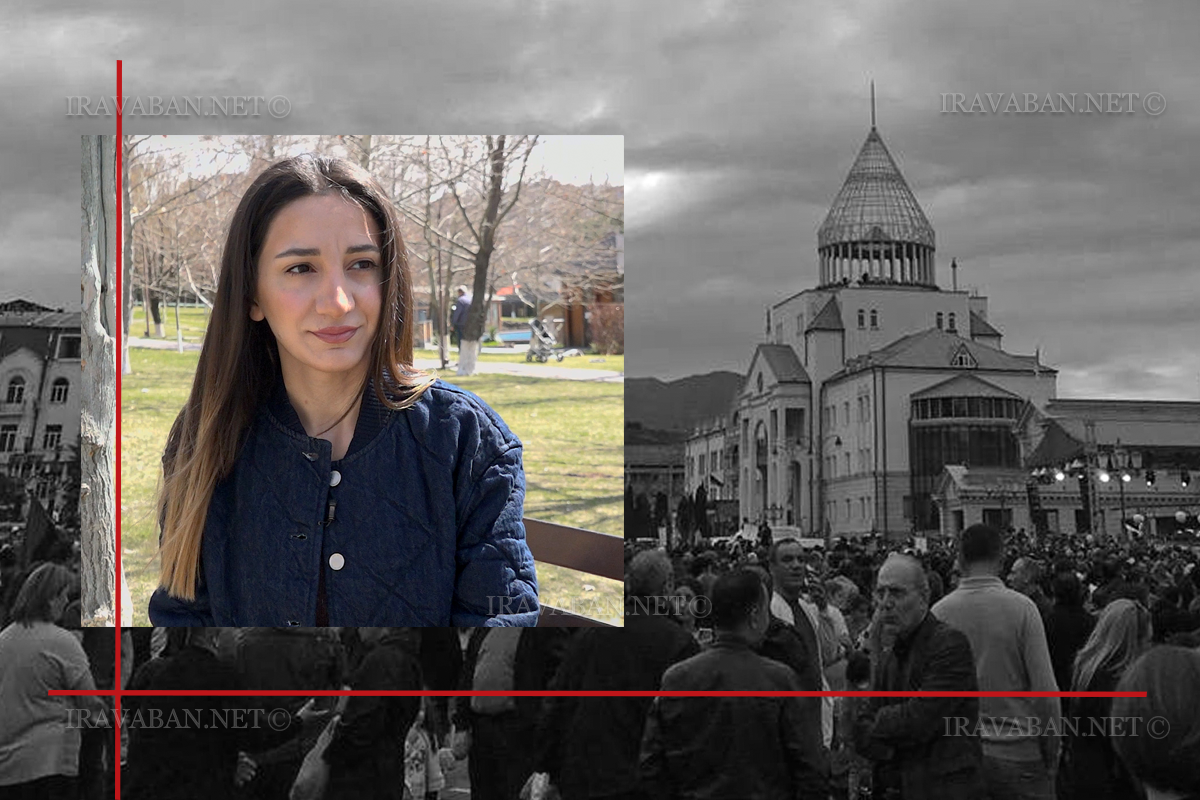“They woke me up 2 hours after giving birth and said, ‘We need to send you and your child by helicopter to Syunik with the severely wounded’: The story of Artsakh resident Anahit Yeghyan”

As part of the documentary project "Artsakh: Armenian Genocide 2023. Stories of Survivors," our interviewee is Artsakh resident Anahit Yeghyan.
On September 19, 2023, when the shooting started in Artsakh, she was at home in the final months of her pregnancy. She recounts that during this time, she tried not to panic or lose herself, quickly went down to the basement, called family members to understand whether everything was okay with them or not.
"After some time, my husband came and said, 'Calm down, they'll bring the children to you soon, everything will be fine.' It was as if we weren't living in the 21st century, we couldn't call anyone. Two days later, they announced that we had to leave Artsakh and take the path of exile," said Anahit.
According to our interviewee, when they were already preparing to leave their homeland, news of a gas station explosion reached them, and because of that, their car was stopped for 9 hours, unable to move forward. During this time, the pregnant woman felt unwell and told her husband to take some steps to provide her with some kind of assistance.
With tears in her eyes, Anahit remembers the scene when they tried to find a way to alleviate her condition: "When we moved, an Azerbaijani police service officer appeared in front of us, approached and asked, 'Where are you going?' My husband explained the situation, they said, 'Follow us.' We followed them and went to the Shushi checkpoint, where both Azerbaijani soldiers and Russian peacekeepers were standing.
We stopped there, they told my husband, 'Get out of the car, explain again why you want to move quickly.' My husband said, 'My wife feels unwell, let me move forward.' That officer stepped aside, made some calls, then said, 'We don't allow it. If your wife's condition is that bad, we can take her to Shushi, but without you. Let her give birth, then we'll bring your wife and child back.'"
Anahit's husband, naturally, did not accept this offer: "They came, took me out of the car, and said, 'Walk in front of us, let's see how your condition is.' To be honest, I felt worse when my husband was begging them with tears in his eyes—that was the most painful part. I noticed one of the Russian peacekeepers, saw how he was crying. He stepped aside and spoke with the officer."
Receiving no help, they decided to return to the Stepanakert medical center, where there was also chaos, with wounded people in all rooms, but they somehow managed to find an empty room.
"The child was born on September 27 at 5 in the morning. Two hours after giving birth, they woke me up and said, 'We need to send you by helicopter to Syunik with the severely wounded.'"
In our conversation, Anahit also talked about the problems that exist after displacement. One of the current concerns is that she and her husband have to pay for the house they built in Artsakh, then left behind, and other amounts taken for its renovation.
"The authorities are closed off to the bank, now the government demands that I must repay that amount to the state, that is the most painful thing for me," says Anahit, revealing that she has appealed to various state bodies, but the problem has not yet been resolved, and she continues to find ways to receive some positive response.
Details in the video.